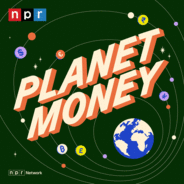Economics Job Market Rumors is a website that's half a job information Wiki, where people post about what's going on inside economics departments, and half a discussion forum, where anyone with an internet connection can ask the economics hive mind whatever they want. All anonymously.People can talk about finding work, share rumors, and just blow off steam. And that steam can get scaldingly hot. The forum has become notorious for racist and sexist posts, often attacking specific women and people from marginalized backgrounds. Last year, economist Florian Ederer and engineer Kyle Jensen discovered a flaw in the way the site gave anonymity to its users. The flaw made it possible to identify which universities and institutions were the sources of many of the toxic posts on the site. And helped answer a longstanding question that's dogged the economics profession: was the toxicity on EJMR the work of a bunch of fringey internet trolls, or was it a symptom of a much deeper problem within economics itself?This episode was hosted by Mary Childs and Alexi Horowitz-Ghazi. It was produced by Willa Rubin with help from James Sneed and Sam Yellowhorse Kesler. It was edited by Keith Romer and engineered by Josh Newell. Fact-checking by Sierra Juarez. Alex Goldmark is Planet Money's executive producer.Help support Planet Money and get bonus episodes by subscribing to Planet Money+ in Apple Podcasts or at plus.npr.org/planetmoney.Learn more about sponsor message choices: podcastchoices.com/adchoicesNPR Privacy Policy

Wirtschaft
Planet Money Folgen
Wanna see a trick? Give us any topic and we can tie it back to the economy. At Planet Money, we explore the forces that shape our lives and bring you along for the ride. Don't just understand the economy – understand the world.Wanna go deeper? Subscribe to Planet Money+ and get sponsor-free episodes of Planet Money, The Indicator, and Planet Money Summer School. Plus access to bonus content. It's a new way to support the show you love. Learn more at plus.npr.org/planetmoney
Folgen von Planet Money
355 Folgen
-
Folge vom 16.12.2023What econ says in the shadows
-
Folge vom 14.12.2023Why '90s ads are unforgettableMaybe she's born with it, maybe it's __________.The best part of waking up, is _______ in your cup!Got ____?If you can identify these brands based on tagline alone, it's possible you... are a 90s kid.The '90s were arguably the peak moment of advertisers trying to make an impression on us that could last for decades. They got us to sing their jingles and say their slogans. These kinds of ads are called brand or image marketing. And it became a lot harder to pull off in the 21st century. On today's show, we look back at the history of advertising, and two pretty unassuming products that totally transformed ads. This show was hosted by Sarah Gonzalez and Kenny Malone. It was produced by James Sneed, and engineered by James Willets. It was fact checked by Sierra Juarez, and edited by Molly Messick. Alex Goldmark is Planet Money's executive producer.Help support Planet Money and get bonus episodes by subscribing to Planet Money+ in Apple Podcasts or at plus.npr.org/planetmoney.Learn more about sponsor message choices: podcastchoices.com/adchoicesNPR Privacy Policy
-
Folge vom 11.12.2023The U.S. economy's biggest superpower, explainedWhat if you could borrow money on the cheap and use it to pay for just about anything? The U.S. government can, and does, with U.S. Treasuries. But the market for Treasuries might be more fragile than we know. In this episode, Yesha Yadav of Vanderbilt Law School explains why. This episode was first published as a bonus episode for our Planet Money+ listeners. Today we're making it available for everyone. To hear more episodes like this, and to hear Planet Money and The Indicator without sponsor messages, support the show by signing up for Planet Money+ in Apple Podcasts or at plus.npr.org/planetmoney.Learn more about sponsor message choices: podcastchoices.com/adchoicesNPR Privacy Policy
-
Folge vom 08.12.2023Why do doctors still use pagers?Remember pagers? They were huge in the 80s — these little devices that could receive short messages. Sir Mix-A-Lot even had a song about them! But then cell phones came along, and pagers more or less became obsolete.Except there's one group of people who still carry pagers: medical doctors. At a surprisingly large number of hospitals, the pager remains the backbone of communication. Need to ask a doctor a question? Page them. Need to summon a doctor to an emergency? Page them. And then... wait for them to call you back.Almost everyone agrees that pagers are a clunky and error-prone way for doctors to communicate. So why do so many hospitals still rely on them?On today's show: A story about two doctors who hatched a plan to finally rid their hospital of pagers. And the surprising lessons they learned about why some obsolete technologies can be so hard to replace.This episode was hosted by Jeff Guo and Nick Fountain. It was produced by Sam Yellowhorse Kesler. It was edited by Keith Romer and fact-checked by Sierra Juarez. It was engineered by Robert Rodriguez with help from Maggie Luthar. Alex Goldmark is Planet Money's executive producer.Help support Planet Money and get bonus episodes by subscribing to Planet Money+ in Apple Podcasts or at plus.npr.org/planetmoney.Learn more about sponsor message choices: podcastchoices.com/adchoicesNPR Privacy Policy
